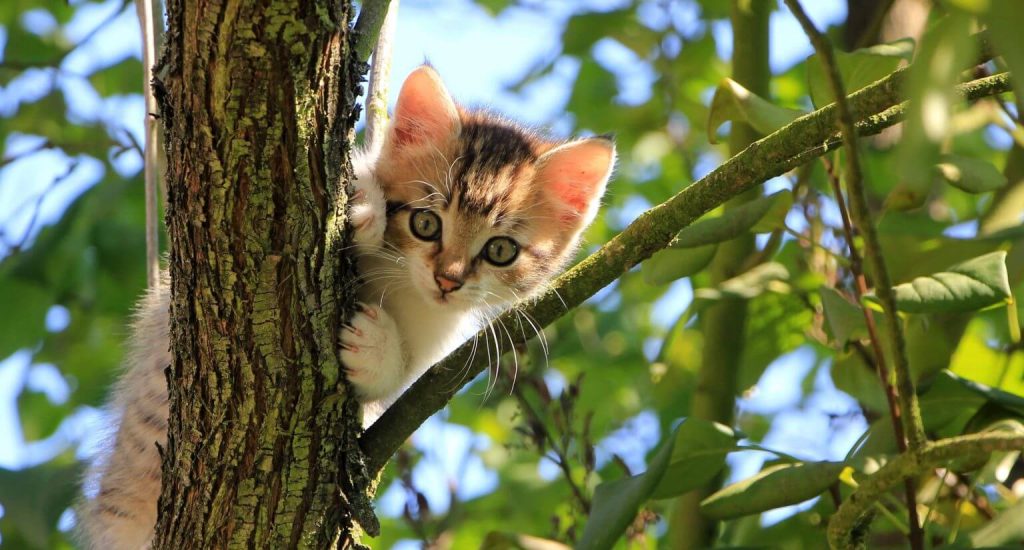Causes of Hair Loss in Cats

There are a few different reasons your cat may be losing their hair. It is a fair reason to worry, but a trip to the vet will reveal the cause and proper treatment. In most instances, their fur will grow back. We look at causes of hair loss in cats and remedies to restore your cat’s fur.
Parasites
The irritation that fleas and ticks cause induces scratching and licking. It makes sense that intense scratching and licking pulls hair out leaving a patch of bald skin. Parasites are easy to treat. Flea and tick treatment is available at your veterinarian clinic, pet shops and supermarkets.
Bear in mind that fleas can live for up to two weeks in carpets and furniture, and flea eggs can survive for 100 days. Parasites may not be visible on other pets, but once your cat has been treated, other pets must be treated as well.
The next step is treating your home. Sprinkle all floors and upholstered furniture with sodium bicarbonate. Bi-carb dehydrates parasites, quickening their end. Wash all pet bedding on a hot cycle every week. If pets sleep on your bed, also hot wash your bedding. Thoroughly vacuum clean all floors and upholstered furniture. Pay extra attention to your cat’s favourite resting areas, and where they eat. Vacuum every other day for a good two weeks. Look out for a resurgence of fleas. If eggs manage to escape the vacuum cleaner, you will need to repeat this process as soon as they appear.
Ticks are far less likely to lay eggs inside your home, typically laying eggs on the ground. They prefer moist environments, but they can survive in sub-zero temperatures. One way you can protect your home from ticks is by keeping your lawn short and your garden tidy; ticks wait in long grass and brush for a passing host. They inhabit piles of leaves and logs, which make the perfect nest for their eggs.
Chemical pest control is an option for heavy infestation. But vigilance with vacuuming and washing can eradicate these parasites from your home, and from your cat.
Ringworm
Ringworm is a fungal infection, not a worm as the name suggests. It affects both animals and humans, usually causing a red ring to appear on the skin, which becomes dry and itchy. In cats and other animals, hair will fall out in the area of infection. The condition is contagious, so care must be taken. Treatment for ringworm consists of a topical cream, and for severe, widespread cases, medication is necessary to clear up the fungal infection. Hair loss can occur at the site of other skin infections. Hair should grow back after the infection is treated.
Stress
In rare cases, stress and anxiety can cause cats to over-groom, resulting in bald patches. Known as feline psychogenic alopecia, bald patches usually show up around the stomach and legs. Your veterinarian will suggest changes in household habits and may recommend medical treatment for your cat’s anxiety. Putting an end to over-grooming will allow their fur to grow back.
Allergies
The most common cause of hair loss in cats is allergies. Like us, some cats suffer allergies to different foods, pollen, insect bites and medications such as prednisone. These allergies can cause hair to fall out, or cause irritation. Cats scratch and lick their irritated skin with their rough tongues, causing hair to fall out. If your veterinarian pinpoints allergies as the cause of your cat’s hair loss, medication will be given. Again, in time, your cat’s hair will grow back.
Preauricular Alopecia
Preauricular alopecia is common in cats. Hair loss occurs between the ears and the eyes. In long hair cats, it is sometimes unnoticeable.
Genetics
Several breeds of cat are genetically hairless, such as the sphinx. Rarely, a cat is born with developmental defects, such as partial hair loss. Other accompanying defects include abnormal teeth, claws, eyes or skeletal malformation. These cats are also more prone to infections in hair follicles and inflammation of the skin.
Hair loss in cats can cause worry to us cat guardians. But it is something we can rectify; a trip to your veterinarian will give you the cause of their hair loss, and treatment to restore their full fur coat. In most instances their hair will grow back, bringing with it the return of kitty cuddle time.

